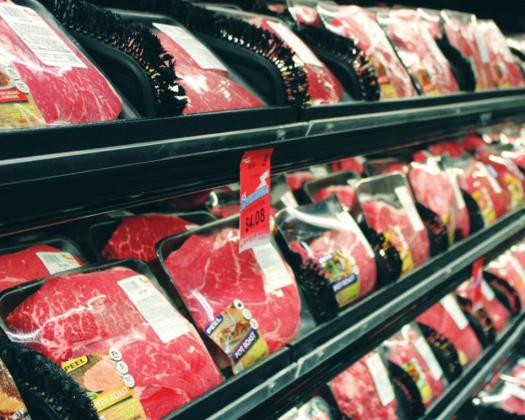It came as a rude awakening to many residents when meat supplies grew short during the initial days of the Covid-19 pandemic. The large meat packing facilities were hard hit by the virus, passed among workers who often stand shoulder to shoulder on the production line.
To avoid a repeat and help secure America’s food supply, Oklahoma Congressman Frank Lucas and House Ag Committee Chairman Collin Peterson of Minnesota introduced the RAMP-UP Act, short for Requiring Assistance to Meat Processors for Upgrading Plants.
The act creates a program to plan and accomplish facilities upgrades through a grant program to existing meat and poultry processors who need the assistance to reach federal inspection levels, allowing them to sell products across state lines. The act will provide grants of up to $100,000 to small-scale meat and poultry processing facilities.
It requires the USD A to work on improving the Cooperative Interstate Shipment program. Current federal regulation prohibits interstate shipment from facilities that are not federally inspected.
“Right now, America’s meat producers and processors are facing unprecedented market challenges. At a time when producers are experiencing increased demand for high-quality meat, meat processors across the United States are racing to increase their capacity to meet the demands of consumers and producers,” said Lucas in a press release. “The RAMP-UP Act gives processors the tools to become federally inspected facilities, which widens their customer base while maintaining strong inspection standards. I’m proud to join my friend and Agriculture Committee Chairman, Congressman Collin Peterson in expanding the opportunities for not only Oklahoma’s processing facilities but meat processors across the United States.”
“We have seen the importance of having meat and poultry processors of all sizes in Minnesota and across the country over the past few months,” Peterson said. “The RAMP-UP Act will provide grants to help these rural small businesses meet that demand, wherever their customers live.”
Other sponsors of the bill were from Georgia, Nebraska, Maine, Pennsylvania, California, North Carolina and Alabama.
As written, the legislation would streamline the process for meat processors to gain federal inspection certification. That in turn would help meet consumer demand for meat products, especially from smaller, semi-custom marketers.
It has been called an act that would help small processors upgrade plants and ship products interstate, creating a public good and allowing consumers a closer relationship to their food, how it is produced, harvested and processed.
It would also diversify the national food supply chain so that in the event larger processors are unable to maintain their place in that chain, there is a reduced chance of shortages or loss of livestock ready for processing, as was the case in some instances during the early stages of the Covid pandemic in America.
“The COVID-19 pandemic has underscored the need to strengthen our food supply chains to prevent disruptions in moving product to the marketplace,” said Rep. David Rouzer of North Carolina. “This bill would help small processors increase their capacity and thereby provide more options for livestock producers to get their product to market. This is a worthy bipartisan effort that will benefit agriculture and the consumer.”
But more mid-to-small meat processors can only ease the situations if there are ample employees ready to man them. The Oklahoma Career Tech and Dept of Agriculture, Food and Forestry have addressed that with new online educational programs.
The classes are designed to encourage processing in the state while curbing the labor shortage in existing Oklahoma plants. They will supply skilled workers to plants both in rural areas and those in larger towns that process tens of thousands of heads of livestock weekly.
“This is an exciting day for the Oklahoma meat processing sector,” said Blayne Arthur, Oklahoma Secretary of Agriculture. “I am very proud to be here especially because this solves problems across the board. A lot of times, we just address one piece of something but this provides a solution to both our producers and consumers.”
The program offers customizable online courses that provide students with certification in alignment with the American Meat Science Association. An industry panel helped determine the specific needs in the workforce and how to meet those needs.
There are opportunities to enroll on the website https://www.okcareertech.org/educators/resource-center/meat-processing-workforce-education/meat-processing-workforce-education where online students begin, eventually moving to regular hands on in person classes for other segments of the program.
Connie Burcham can be reached at Editor@WatongaRepublican.com

